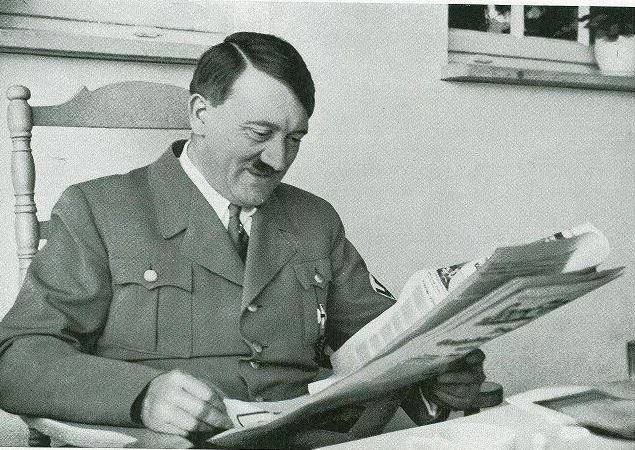The events of August 25, 1939, reflect a day of frantic diplomatic exchanges, strategic decisions, and the last attempts at maneuvering alliances. With the world teetering on the brink of conflict, Germany, Italy, and Britain engaged in a final round of calculations and communications that would shape the path toward war.
Berlin, Germany: A Nation Goes Silent
In a bold and calculated move, Germany severed all international telecommunication links. Telephone lines, telegraph networks, and radio transmissions connecting Germany to the outside world were abruptly halted. This measure was designed to ensure absolute secrecy around Germany's military strategies and prevent any leaks that could compromise the impending invasion of Poland.
The blackout underscored the regime’s commitment to controlling information, isolating the country, and solidifying its grip on the narrative. For Germany, secrecy was paramount as the final preparations for war unfolded.
Berlin, Germany: Hitler’s Letter to Mussolini
Adolf Hitler penned a crucial letter to Benito Mussolini, informing his Italian counterpart of Germany's imminent plans to invade Poland. In his correspondence, Hitler rationalized Germany’s alignment with the Soviet Union, citing the successful negotiation of the Molotov-Ribbentrop Pact as a strategic victory.
The letter framed Poland as the provocateur, blaming deteriorating relations and alleged persecution of ethnic Germans in border regions on Polish actions. Hitler also accused Britain of exacerbating tensions by interfering in German-Polish affairs. He portrayed the invasion as both necessary and inevitable, presenting it as a defensive move to protect Germany’s interests.
While emphasizing the advantages of Germany’s newfound partnership with the Soviet Union, Hitler assured Mussolini that the Axis powers were positioned to capitalize on the evolving geopolitical landscape. His communication revealed the calculated, premeditated nature of Germany's actions and its reliance on reshaped alliances to achieve its expansionist goals.
Berlin, Germany: Hitler and Henderson’s Last Meeting
At 12:45 p.m., Adolf Hitler summoned British Ambassador Sir Nevile Henderson for an hour-long meeting that encapsulated the Führer’s blend of threats and overtures.
Hitler presented a proposal to Henderson, offering Britain a pact that would preserve the British Empire’s dominance and ensure future Anglo-German cooperation. He emphasized that Germany's territorial ambitions were far smaller than those of Britain or Russia and framed his actions against Poland as a necessity to maintain peace and order in Europe.
In an attempt to win British support, Hitler suggested limiting armaments and peaceful negotiations over Germany’s colonial demands. However, he made it clear that if Britain rejected his proposal, war would be inevitable. Hitler stressed that Germany’s agreement with the Soviet Union guaranteed peace between the two nations, allowing him to act decisively without fear of a two-front conflict.
This meeting marked Hitler’s last major attempt to dissuade Britain from opposing his plans. While couched in terms of partnership, his ultimatum left little room for compromise.
Rome, Italy: Mussolini’s Conditional Support
In response to Hitler’s letter, Benito Mussolini offered conditional backing for Germany’s plans. While Mussolini endorsed the invasion of Poland, he made it clear that Italy’s support was contingent on the conflict remaining localized.
Mussolini reminded Hitler of their earlier agreement that projected 1942 as the ideal year for a broader European war. Italy’s military forces, Mussolini argued, were not yet prepared for a large-scale conflict, particularly against major powers like Britain or France. His reservations highlighted the challenges of aligning Italy’s strategic interests with Germany’s aggressive timetable.
Ultimately, Mussolini’s response signaled that Italy would remain neutral during the initial stages of the conflict, choosing caution over immediate engagement. His pragmatic approach contrasted sharply with Hitler’s urgency, reflecting Italy’s recognition of its limitations.
A Turning Point in Diplomacy and Strategy
These developments revealed the fragile and fleeting nature of diplomacy in the face of growing aggression. Germany’s confidence, Italy’s caution, and Britain’s resolve painted a picture of a world bracing for the inevitable. The fuse had been lit, and the countdown to war continued unabated.
